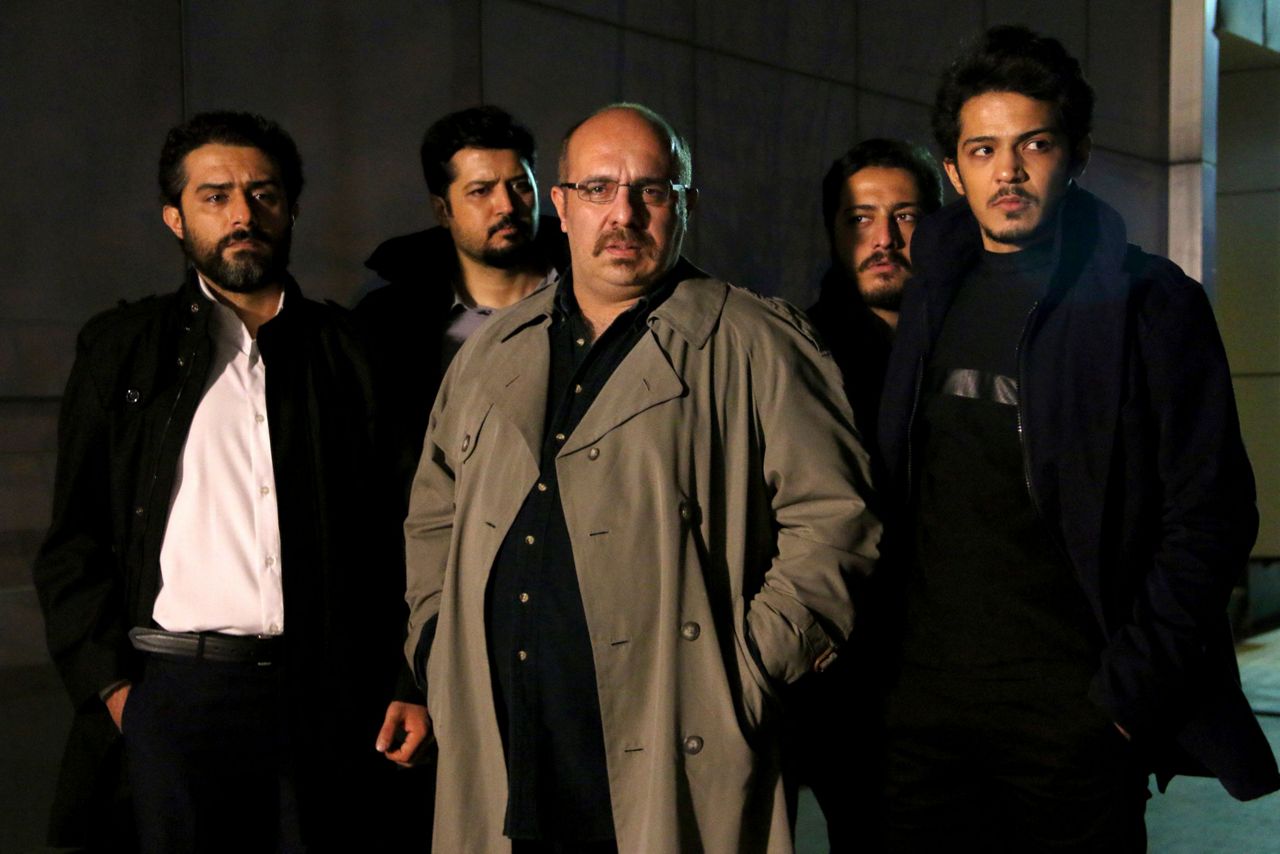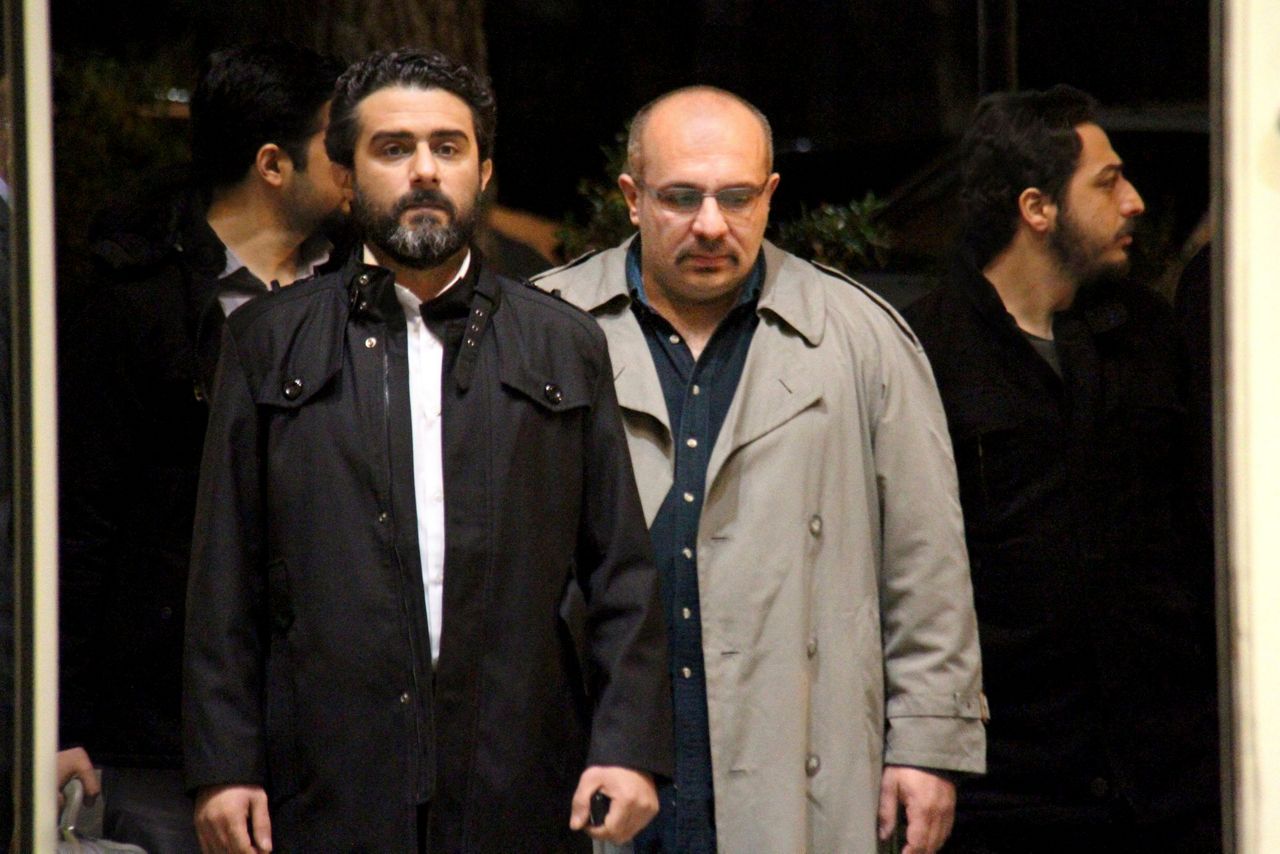TEHRAN, Iran (AP) — The Farsi caption has unfurled across the black screen of a channel of Iranian state television every night for days now, promising viewers that what they are about to witness is "based on a real case."
But the slick graphics, chase scenes and gunfights of "Gando" serve a far different purpose — trying to offer justification of Iran's detention, closed-door trial and imprisonment of Washington Post journalist Jason Rezaian.
The case of Rezaian, who was freed in 2016 after 544 days in a prisoner swap between the U.S. and Iran just as Tehran's nuclear deal with world powers came into force, showed how the Islamic Republic can grab those with Western ties to use in negotiations. It's a practice recounted by human rights groups, U.N. investigators and the families of those detained.
"Gando" instead offers a farcical fever dream of conspiracies — from a chador-wearing sniper opening fire to a White House infiltrated by a blond Iranian female spy who works under a portrait of George Washington. It encourages suspicion of the U.S., journalists and anyone leaning too closely to the West amid heightened tensions between Tehran and President Donald Trump over the unraveling nuclear deal. That includes Iran's Foreign Ministry and, by extension, President Hassan Rouhani, who reached the accord.
"Today, it is easier to tell a story of foreign meddling because of the way Trump pulled out of the nuclear accord despite Iran's compliance and then reinstated harsh sanctions," said Narges Bajoghli, an assistant professor at Johns Hopkins University's School of Advanced International Studies who studies the intersections of culture and power in Iran. "It is easier to tell a story of 'no matter what we do, foreign powers want to see Iran weakened.'"
The 30-episode "Gando," which refers to the name of an alligator indigenous to Iran, has all the trappings of an American police or spy procedural.
Beautiful operatives sit in front of high-tech computer monitors showing surveillance footage and drone shots, graphics far better than those typically seen on a state TV series. A wise old commander's fashion sense, while Iranian, nods toward Mark Harmon's character on the long-running American serial "NCIS."
But reality soon gets tossed aside as it focuses on Michael Hashemian, whose last name rhymes with Rezaian's. He's not just a reporter for the fictitious Eye of the World newspaper. He's a super spy who somehow gets a meeting from President Barack Obama in 2013 and an appointment to be the first U.S. ambassador to Iran after the country's Islamic Republic is overthrown. (Obama's letter, flashed on the screen with the former president's signature, erroneously puts the Islamic Revolution in 1978, instead of 1979.)
Gunfights ensue, including one in which a woman in a chador tosses aside a blanket for a sniper rifle to shoot someone in the leg. Hashemian is arrested, kept in a prison cell the size of a small Tehran apartment, and later tells his captors "during this period I've grown a lot fatter" from all the good food during his incarceration.
Reality, obviously, is a different thing.
Rezaian was arrested July 22, 2014, in Tehran alongside his wife, reporter Yeganeh Salehi, at gunpoint in a night raid. Despite being an accredited journalist for The Washington Post with permission to live and work in Iran, Rezaian was taken to Tehran's Evin prison and later convicted in a closed trial before a Revolutionary Court on still-unexplained espionage charges.
"They held him in prolonged solitary confinement, deprived him of sleep, aggressively and relentlessly interrogated him, denied him basic medical treatment for serious and painful illnesses and infections, and threatened him with dismemberment, execution and other forms of cruel and unusual physical torture," his U.S. federal court lawsuit against Iran reads. "They also threatened to maim and kill his wife Yeganeh and other family members."
The U.N. Working Group on Arbitrary Detentions in 2015 also highlighted his case.
"During the interrogations, he was typically hooded when transported between his cell and the interrogation room, and his interrogators used isolation and threats of physical harm to Mr. Rezaian's wife in unsuccessful attempts to force him to confess to crimes which he did not commit," the group's report said. "The source states that Mr. Rezaian has been humiliated, mistreated and deprived of the most basic facilities, including access to a bathroom, at various points during his detention."
While detained, Rezaian suffered "dramatic weight loss, respiratory problems and chronic infections of the eye and urinary tract," the report added. It notes interrogators used an unsuccessful job application to the Obama-Biden transition team in 2008 — offering to "break down barriers" in U.S.-Iran relations — and an effort to secure his wife a U.S. visa as evidence of espionage.
A prisoner swap in January 2016 as Iran's nuclear deal came into force saw Rezaian and three other Iranian-Americans freed. The U.S. also made a $400 million cash delivery to Iran, something "Gando" gleefully recounts with pallets of cash near a private jet at Tehran's Mehrabad airport.
"You're being freed in exchange for hard cash," an Iranian intelligence officer in the series tells Hashemian.
The show also makes Iran's Foreign Ministry look inept amid the negotiations, as only the intelligence operatives made sure to get the money for the prisoner release.
The characterization of the Foreign Ministry, including Foreign Minister Mohammad Javad Zarif, even came up at a weekly news conference held by the ministry's spokesman, who acknowledged he watched the show and called it "not a bad series based on the special effects."
"They said this is based on a true story. There are so many documents in the Foreign Ministry about our negotiations on this issue," Abbas told journalists. "If they asked us, we would have provided them to them to make the show much more realistic."
The show's vision is clearly embraced by its actors. Payam Dehkordi, who plays Hashemian as a sweating and conniving conman, told Iran's semi-official ISNA news agency that he believed Rezaian was "definitely a spy" after the U.S. made the cash exchange.
"If Jason Rezaian was not a spy, John Kerry would not have welcomed him, and Obama would not have held a luncheon for Rezaian," Dehkordi reportedly said.
To date, other Westerners remain held in Iran.
State television aired a segment this week showing the actors manning a call center, receiving messages from happy fans of "Gando." The director said they planned a second series.
___
Follow Jon Gambrell on Twitter at www.twitter.com/jongambrellAP .
Copyright 2019 The Associated Press. All rights reserved. This material may not be published, broadcast, rewritten or redistributed.




